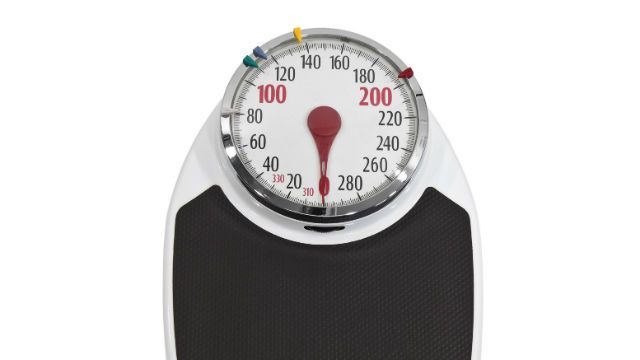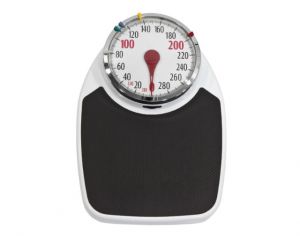
Many people, in the quest to achieve a healthy body size, attempt to chart their progress by frequent visits to the bathroom scale to measure pounds gained or lost. However, the scale is a very poor judge of health progress, especially on a short term basis. One reason for this is water weight gain.
Water weight gain, also called water retention or sometimes bloating, is not caused by drinking water – unless you take in an overwhelming amount. In fact, having too little water and being dehydrated can actually cause it. An excess of sodium can also lead to this situation, and oftentimes it comes from eating processed foods – which can cause your cells to store both fat and water.
Another culprit is sugar. Sugars are comprised of simple carbohydrates, which raise your insulin levels when you consume them. High insulin levels can lead to sodium retention, as well as fluid retention. Complex carbohydrates such as grains and starches can also have this effect. Alcohol, being a naturally dehydrating substance, can also leave you bloated.
Additionally, as all women know, hormonal cycles centered around “that time of the month” can also lead to significant water weight gain, which naturally dissipates after menstruation. However, when weighing yourself at this time, you may find a notably higher number displaying on your scale.
There are several signs that you can observe to determine if you are retaining excess water. You may notice puffiness in your hands, feet or ankles, your rings may feel tight, and your clothes, especially your socks, may feel tighter than normal. You may also find yourself feeling tired and sluggish.
Luckily, the steps to avoiding water weight gain overlap with some of the steps for avoiding fat gain. Cutting out processed foods is essential, as is foregoing sugar, which many experts agree should be avoided entirely, except from natural sources such as fruit.
Keeping alcohol intake to one or two drinks per day, developing a daily exercise routine – with a mix of both high intensity interval training and strength exercise – and sticking to whole, nutritious foods with limited carbohydrate content are also key.
 Even with these healthy steps, however, the scale is not a reliable tool. Your weight will fluctuate daily due to many factors. You may weigh a couple pounds lower after an exercise session (as your body sweats out excess water), only to see it back the next day. As you lose fat and gain muscle, you will find yourself looking better, but there will likely be little change in your weight at first.
Even with these healthy steps, however, the scale is not a reliable tool. Your weight will fluctuate daily due to many factors. You may weigh a couple pounds lower after an exercise session (as your body sweats out excess water), only to see it back the next day. As you lose fat and gain muscle, you will find yourself looking better, but there will likely be little change in your weight at first.
For these reasons, if you must weigh yourself, keep it to every two weeks, or even every month. Let how you feel, from the inside out, be the real tracker of your progress.
-The Alternative Daily
Sources:
http://stronglifts.com/weight-loss-vs-fat-loss-are-you-sure-you%E2%80%99re-losing-fat
http://www.discovergoodnutrition.com/2013/07/water-weight-gain

